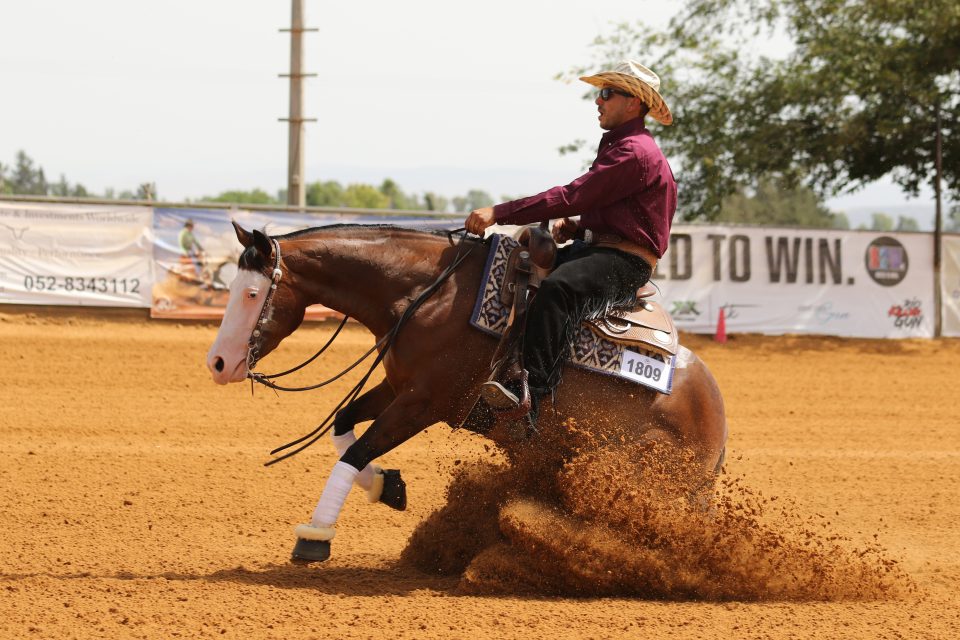Illnesses, accidents, and emergencies can leave a horse’s future in limbo. Whether it’s your own horses or your client’s horses, planning for the worst-case scenario ensures that horses are taken care of in your absence.
By Katie Navarra

It’s human nature that we don’t like to consider our own mortality. It’s just too morbid. Yet, we all know that life can be unpredictable. In a split second, a disease, a car accident, or an act of nature can alter or end a person’s life. Such circumstances can leave the injured, ill, or deceased individual’s horses in limbo.
“Emergency decisions are made in supremely stressful situations that are not conducive to rational decision-making,” said Denise Farris, a Kansas-based attorney who specializes in equine law. “Sadly, many of these horses left behind are turned out to pasture or go to persons or entities that’d not be the first choice of the departed owner.”
Quick decisions in these situations can have unforeseen consequences or negative results.
“Isn’t it much better to control the future of a valued horse, rather than leaving it to chance?” she asked.
As if planning for an unexpected death isn’t challenging enough, trainers are burdened with considering the matter from two perspectives: One as a personal horse owner and the other as business owner responsible for someone else’s horse, said attorney Peggy R. Hoyt, a horse owner and the author of All My Children Wear Fur Coats.
“A trainer has to consider what happens to a horse when a client dies,” she said. “You need to know how you’re going to get paid, where the horse is going to go, and you may even want the first right of refusal to buy the horse.”
It’s more productive to evaluate these decisions before an emergency arises. This allows for options to be weighed in a mindful and deliberative manner so that bad decisions can hopefully be avoided. Advanced planning provides the opportunity to create a safety net. This ranges from lining up contingency plans to setting aside finances and securing the consent of all the parties involved.
In this four-part series, we’ll cover:
Part 1: Pets and Estate Planning
Part 3: Creating a Trust or Will
Part 4: Saving for Long-Term Care
Pets and Estate Planning
It is increasingly common for pet owners to include their animals in estate planning. According to the American Pet Products Association’s 2017–2018 National Pet Owners Survey, increasing numbers of pet owners are making provisions, either financial or naming a caretaker, for pets in their wills. More than half of horse owners who responded had named caretakers for their horses.
Each state has enacted pet trust laws that allow owners to make provisions for their animals in the event of the owner’s death. Some states impose funding limits for pet trusts that permit the court to reduce and/or redirect trust property determined to be in excess of the intended use outlined in the trust. Hoyt cited the case of hotel heiress Leona Helmsley who left $12 million to her dog in a trust. The judge determined that was too much money for a dog and cut it down to $2 million.
While few horse trainers amass that volume of wealth, it’s important to be aware of individual state statutes and a judge’s ability to weigh in on an individual’s will or trust. Farris and Hoyt offer practical advice that can help you create a plan to ensure that in the event of a tragic event, your horses—and those of your customers’—are cared for.
Conclusion
Estate planning can be daunting. No one wants to dwell on worst-case scenarios. Taking the time to have uncomfortable conversations without the pressure of life-altering circumstances looming means you’ll have an opportunity to thoroughly weigh your options.
“If you truly love and value your horses, and you’re unsure of your heir’s ability to recognize your wishes concerning the disposition of your horses upon your death, then it’s much better to have a plan in place that you’ve created,” Farris said.
Hoyt added that even if you or your client don’t establish a trust, spend time thinking about what happens to the horses in the event of tragedy.



